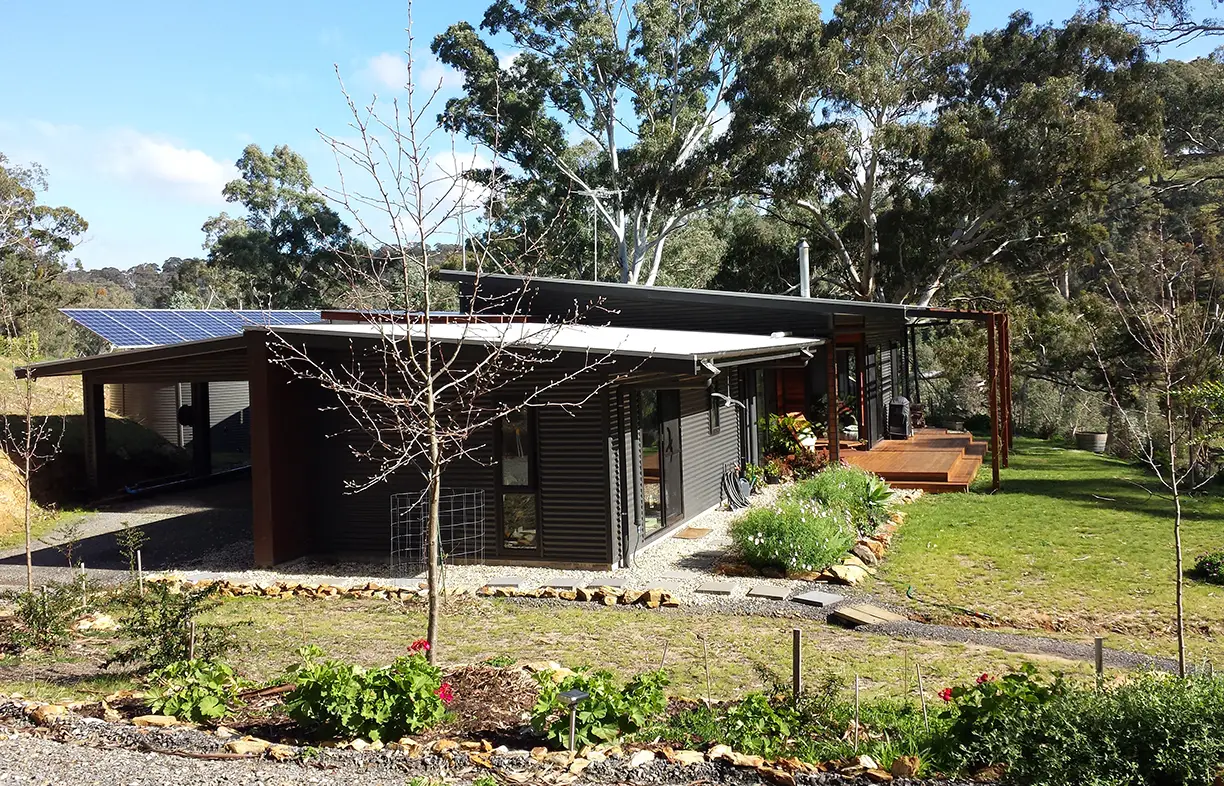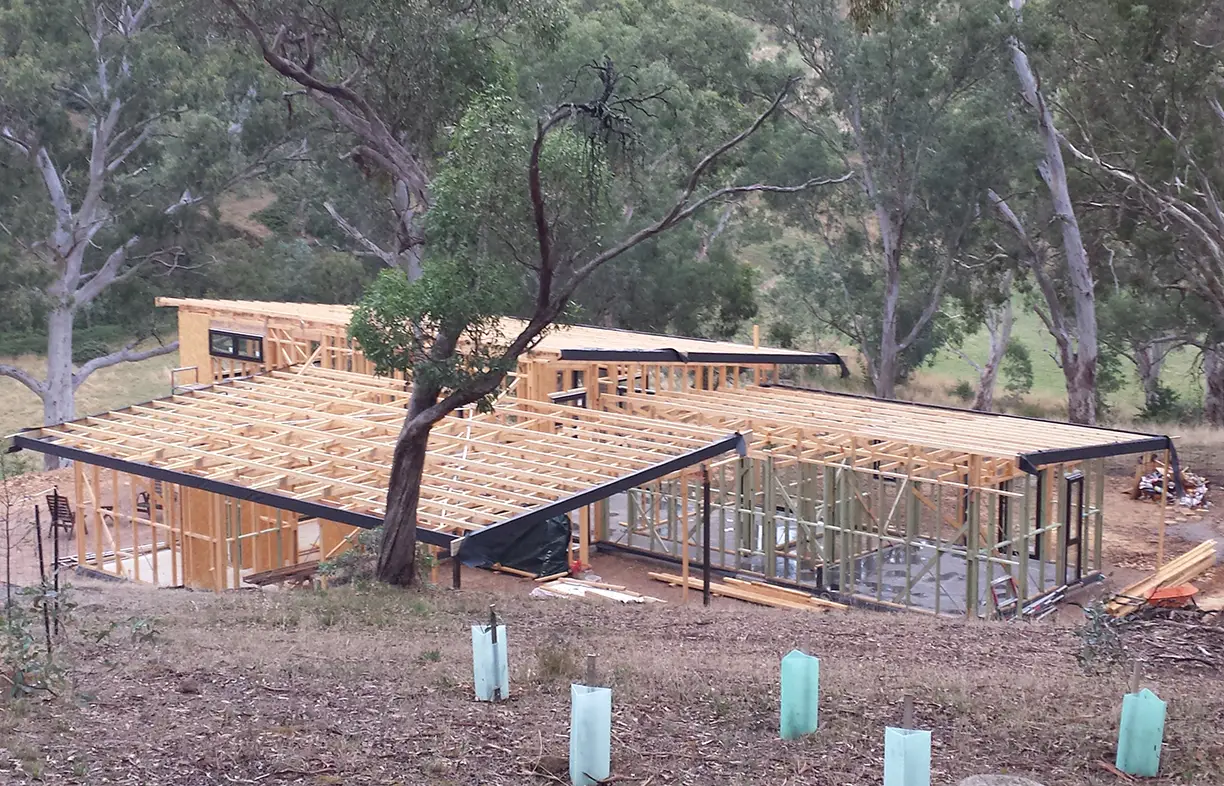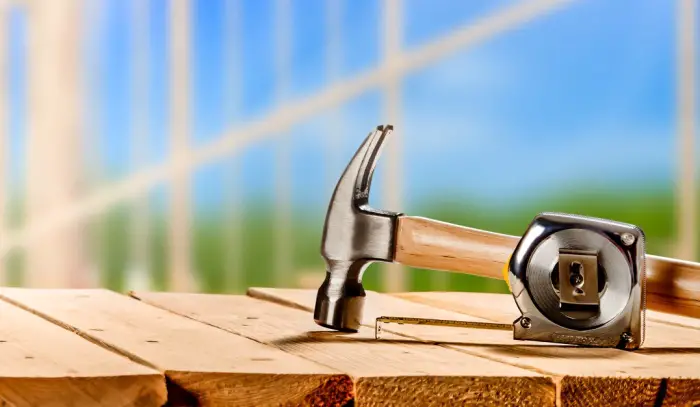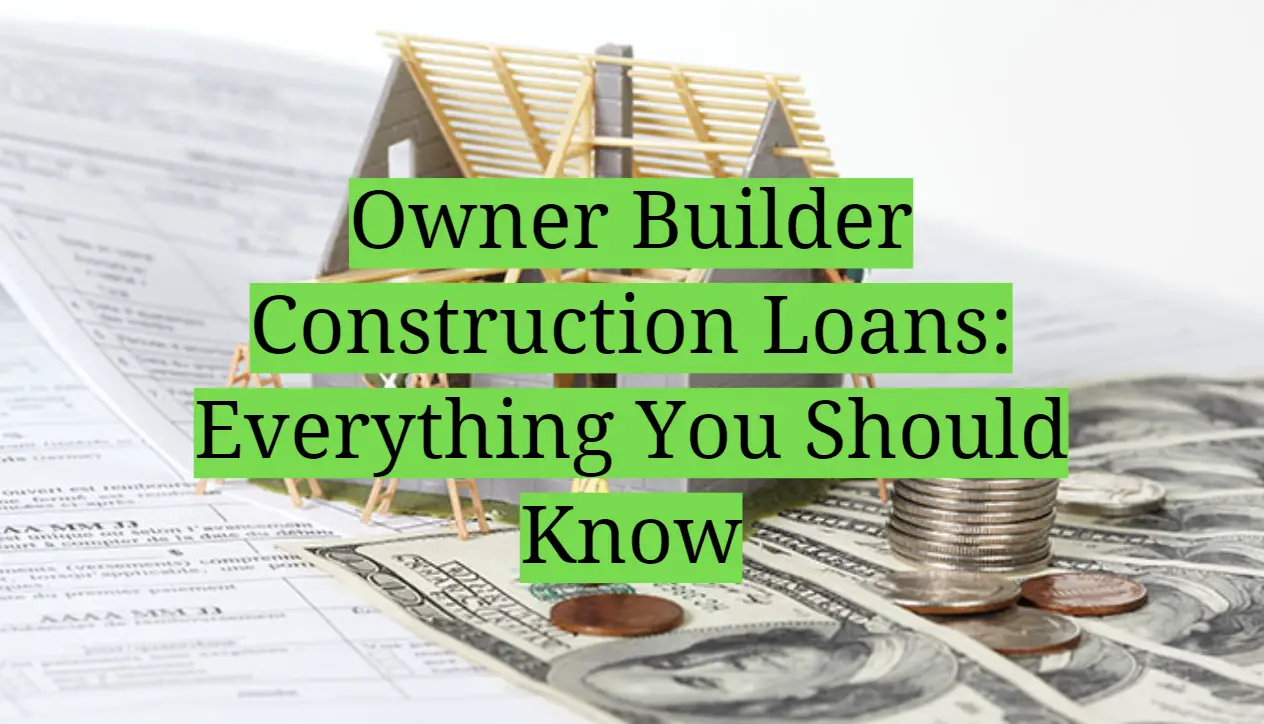If you’re thinking of becoming an owner builder, you’ll need to know about owner builder construction loans. This type of loan can help finance your project, but it’s important to understand the process and what to expect. In this guide, we’ll discuss everything you need to know about owner builder construction loans. We’ll cover how they work, the eligibility requirements, and the application process. Plus, we’ll give you some tips on how to get the best deal on your loan. So whether you’re just starting out or you’re already in the planning stages, this guide will have everything you need!
What is an Owner-Builder?
An owner-builder is an individual who takes on the role of general contractor when they build, remodel or repair their own home. They assume all of the responsibilities and liabilities that come with being a general contractor without any help from professional contractors. This includes handling permits, scheduling inspections and hiring subcontractors. [1]

What Does an Owner-Builder Do?
An owner-builder is responsible for the entire project, from start to finish. This includes obtaining any necessary permits, purchasing or renting materials and equipment, scheduling inspections and hiring qualified subcontractors. They must also follow all applicable building codes throughout the construction process. Additionally, they are responsible for keeping their costs within budget and ensuring that the final product meets their expectations and is up to code.
What Skills Are Necessary?
In order to be an owner-builder, certain skills are essential. These include being able to read plans and blueprints, understanding building codes, and having a basic knowledge of construction techniques. Furthermore, it is important that they have the ability to manage both time and money effectively and have good problem-solving skills. Finally, they must also possess strong organizational and communication skills in order to coordinate with subcontractors and suppliers. [2]
Delegating Responsibility
As an owner-builder, it is important to remember that you cannot do everything yourself. You must be prepared to delegate tasks to subcontractors and other professionals. You must also understand the scope of work for each task and ensure that all subcontractors are performing their duties in a timely and professional manner. This will help minimize any potential delays or costly mistakes.
On-Site Project Managers
If you don’t have the time or skills to manage the project yourself, it is a good idea to hire an on-site project manager. They will be responsible for overseeing all aspects of construction from start to finish and ensuring that everything is done according to plan. This will help ensure that your project is completed in a timely and efficient manner.
Construction Management Companies
In some cases, it may be advisable to hire a construction management company. They will handle all aspects of the project from start to finish and can help ensure that the work is completed on time and according to plan. Additionally, they are usually well-versed in local building codes so they can help ensure compliance with regulations.

Benefits of Owner-Builder Loans
Owner-builder construction loans can be a great way to finance your project. Not only do they provide you with the necessary funds, but they also offer several other benefits. For example, these loans typically have lower interest rates than traditional home improvement loans and may require no down payment or closing costs. Additionally, since you are the owner-builder and responsible for the project, there is less risk associated with these types of loans.
Instant Equity
Another benefit of owner-builder construction loans is that you can instantly create equity. Since you are responsible for the project, any increase in value during or after construction will go directly to you and not to a lender. This can be especially beneficial if you plan on selling your home shortly after it is completed.
Save Money Both Now and Later
When you use an owner-builder construction loan to finance your project, you can save money both now and later. Not only do these loans usually have lower interest rates than traditional home improvement loans, but they also typically require no down payment or closing costs. Additionally, since you are directly responsible for the project, there will be fewer delays and costly mistakes.
Control Equals Satisfaction
When you are the owner-builder of your project, you have complete control. This means that you get to make all the decisions and ensure that things go according to plan. This can lead to satisfaction and a sense of pride knowing that you were directly responsible for creating something from nothing.
The Drawbacks of Owner-Builder Loans
While there are many benefits to owner-builder construction loans, there are also some drawbacks. One of the biggest issues is that since you are responsible for both the costs and completion of the project, if something goes wrong it can be very costly. Additionally, you must have a good understanding of construction techniques and local building codes in order to ensure that everything is done correctly. [3]
Difficult to Obtain
Another issue is that owner-builder construction loans can be difficult to obtain. Since you are personally responsible for the financing, lenders often require a higher credit score and income level than they would with a traditional loan. Additionally, these types of loans usually take longer to process since more information is needed before it can be approved.
Higher Fees and Multiple Closings
Owner-builder construction loans also typically come with higher fees and may require multiple closings. This can increase the overall cost of the project, so it is important to factor this in when determining your budget. Additionally, the loan process can be complex and time consuming so it is best to enlist the help of a professional if you are considering this type of financing for your project.
How to Obtain an Owner-Builder Construction Loan

When applying for an owner-builder construction loan, there are several documents that must be supplied. These include proof of your income and assets, as well as detailed plans for the project. Additionally, it is important to provide evidence of any prior experience with building projects or other relevant qualifications so that lenders know that you are capable of completing the job.
Creating a Business Plan
Finally, it is important to create a comprehensive business plan that outlines the costs and timelines for the project. This document should include an itemized list of materials and labor costs, as well as any other expenses associated with the construction. It should also include projected timelines for completion and contingencies in case unforeseen issues arise.
By understanding owner-builder construction loans and taking steps to ensure you are properly prepared, you can save money on your building project and gain satisfaction from knowing that you built something with your own two hands. With careful planning, research and preparation, obtaining an owner-builder loan can be a great way to finance your next home improvement project.
Qualifying for the Loan
To qualify for an owner-builder construction loan, you must meet certain criteria. In addition to having the necessary financial resources and experience in building projects, you must also have a good credit score and a steady income. Additionally, lenders will typically require that you provide detailed plans of your project so they can assess whether or not it is feasible.
Post-Approval Steps
Once your owner-builder construction loan has been approved, there are still some important steps to take before beginning the project. You will need to obtain a building permit and hire contractors or subcontractors that are licensed and insured. Additionally, you may need to purchase materials in bulk for better pricing and arrange for inspections throughout the duration of the project.
By following these guidelines and doing your research, you can ensure that you get the best terms on an owner-builder construction loan and that your project is completed safely and within budget. With careful planning and preparation, this type of financing can be a great way to finance your next home improvement project.
Key Indicators for Owner Builder Construction Loans
This table presents key indicators for owner builder construction loans. Owner builder construction loans are specialized loans that allow individuals to act as their own general contractors when constructing their own homes. The indicators in this table provide important information for evaluating and understanding the terms and requirements of owner builder construction loans. The data is presented in the imperial system for ease of understanding.
| Indicator | Range | Definition |
|---|---|---|
| Interest Rate (%) | 4.5 – 6.5 | The annual interest rate charged on the loan amount. |
| Loan-to-Value Ratio (%) | 75 – 90 | The maximum loan amount as a percentage of the property’s appraised value. |
| Loan Term (months) | 240 – 480 | The duration in months for which the loan will be repaid. |
| Minimum Down Payment ($) | 40,000 – 70,000 | The minimum down payment required as a percentage of the total project cost. |
This table provides key indicators for owner builder construction loans, highlighting important factors to consider when evaluating and comparing loan options. Here’s an explanation of each indicator:
- Interest Rate (%): The annual interest rate charged on the loan amount. It represents the cost of borrowing and influences the overall repayment amount.
- Loan-to-Value Ratio (%): The loan-to-value ratio indicates the maximum loan amount as a percentage of the property’s appraised value. It determines how much financing can be obtained relative to the property value.
- Loan Term (months): The loan term represents the duration in months for which the loan will be repaid. It determines the length of time borrowers have to repay the loan and affects the total interest paid.
- Minimum Down Payment ($): The minimum down payment required as a percentage of the total project cost. It represents the initial investment from the borrower and influences the loan amount and overall project financing.
By considering these indicators, individuals interested in owner builder construction loans can make informed decisions about loan terms that align with their financial goals and project requirements.
FAQ
How do I apply for a construction loan?
The application process for a construction loan is similar to any other type of loan. You will typically need to provide evidence of your income and assets, as well as detailed plans for the project in order to be approved. Additionally, certain lenders may require that you have some prior experience with building projects before they will approve your loan.
When do I begin principal & interest payments?
The principal & interest payments on a construction loan typically begin once the project is finished and all inspections have been completed. The lender will typically require that the property be insured during the duration of the loan, so you may need to obtain insurance before payments can begin.
When can I lock my construction loan?
Most lenders allow you to lock your loan rate once the project has been approved. This will ensure that the rate you are offered is guaranteed and cannot change during the duration of the loan. It is important to note, however, that lenders can retract their offer if they feel that the project may not be completed on time or within budget. [5]
Can I build my own home if I don’t have a license?
Yes, you can build your own home without a license. However, it is important to research the laws in your state before building as some states may require that certain projects be completed by a licensed contractor. Additionally, lenders may have specific qualifications for an owner-builder construction loan, so it is important to check with the lender before beginning your project.
What are owner builder construction loans?
Owner builder construction loans are specialized loans designed to finance the construction of a home by individuals who plan to act as the general contractor or builder themselves. These loans provide funds to cover the costs associated with building a home, such as purchasing land, obtaining permits, hiring subcontractors, and buying materials.
What are the benefits of owner builder construction loans?
Owner builder construction loans offer several benefits, including:
1. Cost savings: By acting as your own builder, you can potentially save on contractor fees and markups.
2. Control over the project: As the owner builder, you have full control over the design, timeline, and quality of construction.
3. Flexibility: Owner builder loans allow you to customize the home according to your preferences and needs.
4. Equity building: By building your own home, you can increase your equity as the value of the property typically rises during construction.
What are the eligibility requirements for owner builder construction loans?
Eligibility requirements for owner builder construction loans may vary depending on the lender, but common criteria include:
1. Good credit history: Lenders typically require a solid credit score and a history of responsible financial management.
2. Adequate income and assets: You’ll need to demonstrate your ability to repay the loan by providing proof of income and assets.
3. Experience and knowledge: Some lenders may require previous construction experience or knowledge to ensure you can effectively manage the project.
4. Detailed construction plans: A well-documented construction plan is often required, including blueprints, cost estimates, and a timeline.
How do owner builder construction loans work?
Owner builder construction loans typically work in phases. Initially, the lender disburses funds to purchase the land and cover the pre-construction expenses. Once construction begins, funds are released in predetermined stages, known as draws, to cover the costs of each phase of the project. Draws are usually made after an inspection verifies that the work has been completed satisfactorily. As the project progresses, you’ll make interest-only payments on the disbursed funds. After the construction is complete, the loan typically converts to a traditional mortgage.
What is the loan-to-value ratio for owner builder construction loans?
The loan-to-value (LTV) ratio for owner builder construction loans is usually based on the appraised value of the completed home. Lenders typically offer loans with an LTV ratio of around 80%, meaning they will finance up to 80% of the appraised value of the home. However, some lenders may have different LTV requirements, so it’s essential to check with individual lenders to understand their specific terms.
What are the potential challenges of owner builder construction loans?
While owner builder construction loans can be advantageous, they also present certain challenges, including:
1. Time and effort: Acting as the general contractor requires significant time and effort to manage the construction process.
2. Limited financing options: Not all lenders offer owner builder construction loans, so finding a suitable lender can be more challenging.
3. Increased responsibility: As the builder, you are responsible for coordinating subcontractors, managing timelines, and ensuring compliance with building codes and regulations.
4. Construction risks: Any construction project carries inherent risks, such as cost overruns, delays, or unforeseen issues, which you’ll need to address as the owner builder.
Can I use an owner builder construction loan for major renovations?
While owner builder construction loans are primarily designed for new home construction, some lenders may allow their use for major renovations or substantial home improvement projects. However, the specific eligibility requirements and terms may vary, so it’s crucial to consult with lenders to determine if they offer such financing options.
What happens if I encounter cost overruns during the construction?
If you encounter cost overruns during the construction process, you’ll need to manage them as the owner builder. It’s essential to plan and budget carefully to avoid exceeding your available funds. If unexpected costs arise, you may need to reassess the project, negotiate with subcontractors or suppliers, or seek additional financing options to cover the shortfall. Proper planning, contingency funds, and open communication with your lender can help mitigate the impact of cost overruns.
Useful Video: New Home Construction Loans Explained | What is a Construction Loan
Conclusion
If you’re feeling motivated to take on an owner builder construction project, then you’ll need to get informed about all of your financing options. An owner builder construction loan might be the right fit for you, but it’s important to do your research and understand all of the details before making any decisions. We hope that this article has helped give you a better understanding of owner builder construction loans and that you now feel more confident in taking on your next project.
References
- https://www.cityofplacerville.org/media/Building%20Division%20Files/Plan%20and%20Permitting%20Information/What%20is%20an%20Owner-Builder.pdf
- https://www.parkerbrent.com.au/blog/7-things-must-know-become-owner-builder/
- https://builderloans.net/owner-builder-construction-loans/
- https://www.scotsmanguide.com/pages/niche-lenders/owner-builder-construction-loans
- https://blackdiamondmortgage.com/construction-loans-lock-protection-down-payment/














Leave a Reply